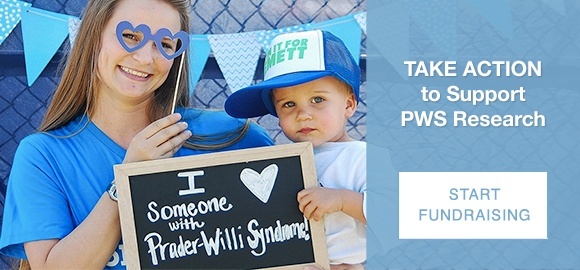A special contribution by guest blogger Rebecca Noel
On May 25th our beautiful son Bron arrived to our tears of joy. He was so tiny and precious, and needed time in the NICU. He seemed to be making wonderful progress and we were full of hope. We had gotten all of our genetic testing done during the pregnancy so we didn’t anticipate any genetic diagnosis. We checked all of the boxes to make sure our baby was born as healthy as possible. I didn’t drink alcohol, I didn’t drink caffeine, I ate organic most of the time. 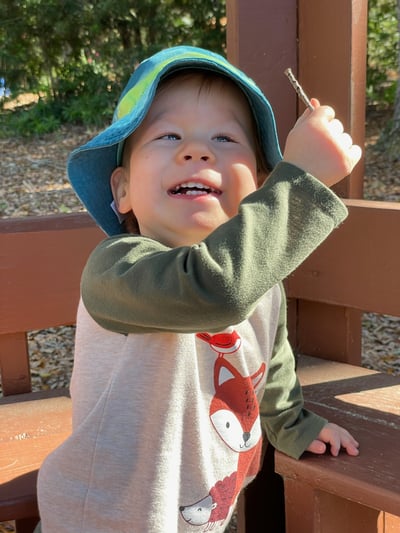
June 5th. That was the day I heard the words “Prader Willi Syndrome” uttered for the first time. It was in the NICU with my 10 day old, tiny baby boy. The words were mentioned in passing by the doctor during the rounds. He was nonchalant, like someone might comment on the weather. I didn’t think anything of it as he continued with his routine update. In the beginning, I told myself that I was only in the NICU because my body wasn’t functioning properly during the pregnancy, and once my beautiful boy could get the sustenance he needed through this feeding tube, he’d gain the strength to become a champion athlete and weightlifter (like his father). I blamed my own anatomy, because we always need someone to blame.
I was determined to get my baby out of this hospital. To redeem myself. I was pumping milk around the clock. I wasn't sleeping more than an hour at a time. I felt that it was my fault we were here. Prader Willi Syndrome shouldn’t enter into this because it was a genetic disability, and we had gotten all of our genetic testing done during the pregnancy. We had gotten the genetic testing done! The doctor couldn’t have seriously thought that’s what our son had, or he would have been more attentive as he read off his chart during the rounds that morning.
Until that morning, I believed in my heart of hearts that our son was just suffering from malnourishment, but that morning after the doctor’s rounds, I couldn’t get the words “Prader Willi Syndrome” out of my head.
While I was living in the NICU, my husband needed to leave at night to take care of our dogs at home. When he came back in the mornings, he would bring me food and I’d make my way through the seemingly endless maze of my son’s NICU room to the break room. In hindsight it was only 2 turns, just a few steps away.
I’d make sure to take my phone to send my family uplifting updates when I got there. On June 5th, before sending a comforting, upbeat message to my family, I Googled Prader Willi Syndrome. I remember reading the symptoms and immediately feeling faint. Words like “floppy” “failure to thrive” “downturned mouth” “weak cry” “small hands and feet” convinced me that this is what was happening with my son. 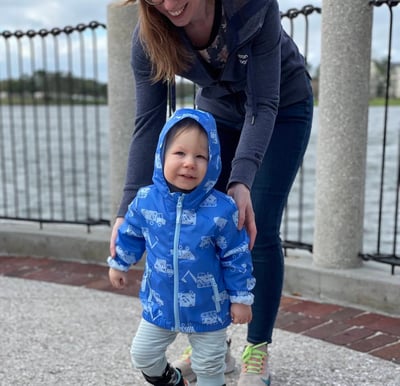
Then, words like “intellectual disability” “behavioral problems” “obesity” “psychosis” and “group homes” sent complete and utter anguish through my body. I couldn’t stop crying. I couldn’t stop shaking. Anguish almost as though I had just lost him. Anguish like my world was just turned upside down. Anguish about his future. Anguish because my body had betrayed me by allowing this genetic mutation to happen. Anguish over the complete lack of control I’d have over his health every day from now on. All anyone ever wants is health and happiness in this world, right? If all we’ve ever known is health, we believe that without health there is no happiness. I was no different.
Later that afternoon, the geneticist came in to confirm the diagnosis. She gave us a wikipedia print out and told us that the future was going to be “complicated”. She gave us “comfort” by comparing PWS to Angelman Syndrome, saying that people with PWS have a higher IQ. As if we had any clue what the hell she was talking about! AS IF THAT MATTERED!
My husband and I went down the same spiral together. Our bodies were weak and our minds were full of fog. We both had dark thoughts. Neither of us had ever imagined that our child might not have a predisposition to be active and healthy, like we tried to be our whole lives. The future we envisioned went from camping trips with campfires and smores, to strict routines with cabinet and refrigerator locks. It went from regular holiday celebrations with friends and family, to isolation. It went from seeing our son grow up to be an independent, athletic social butterfly, to someone who would make people uncomfortable to be around, just by being himself. It went from being something to envy, to pitiful. 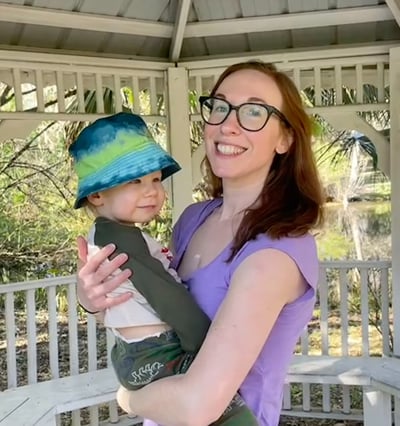
When you read about the most debilitating symptoms and hear stories of families who are going through the wringer because of Prader Willi Syndrome, it’s impossible to get the ideas of “worst case scenarios” out of your brain.
Our innocent newborn was less than 5 lbs and instead of imagining all of the snuggles I’d get with him in the first few years, I was imagining him beating me up in his teenage years to get to food. Would I need to take self-defense classes to defend myself against our son one day? Instead of appreciating every adorable yawn, I was imagining aggressive psychotic episodes he might have in public in the distant future.
I don’t like to use the word hate, but I hate the reaction that my husband and I had when we got the diagnosis of PWS. Do I think it was a typical reaction? Absolutely. I just wish we could have predicted all of the joy we’d have instead of the struggles. In that moment, the fear of the unknown took control. We were in a fight or flight mindset for days, when we could have been appreciative of this new precious life that had just come into the world.
My beautiful son is almost 2 now. Just because we might have hard times ahead, that doesn’t take away from the joy and progress we experience every day in the here and now. It shouldn’t and doesn’t impact the hope we have for our son’s future. Everyone’s life, at one point or another, looks different than what they had envisioned.
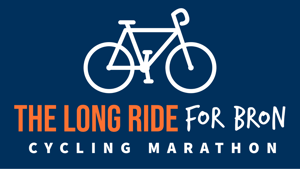 Our son has changed our lives in so many beautiful ways. The amount of love and light he has brought to our lives is immeasurable and we love everything about him. We know we have challenges in the future, but the work that The Foundation for Prader Willi Research does will make a difference in that future. With so many potential treatments of the most debilitating symptoms in trial phases, we have hope that Bron’s future will be that of a “full” life.
Our son has changed our lives in so many beautiful ways. The amount of love and light he has brought to our lives is immeasurable and we love everything about him. We know we have challenges in the future, but the work that The Foundation for Prader Willi Research does will make a difference in that future. With so many potential treatments of the most debilitating symptoms in trial phases, we have hope that Bron’s future will be that of a “full” life.
You can make a difference in his life, and the lives of everyone living with PWS by donating to The Long Ride for Bron Fundraiser today and sharing our story. Thank you for spreading awareness and HOPE.




